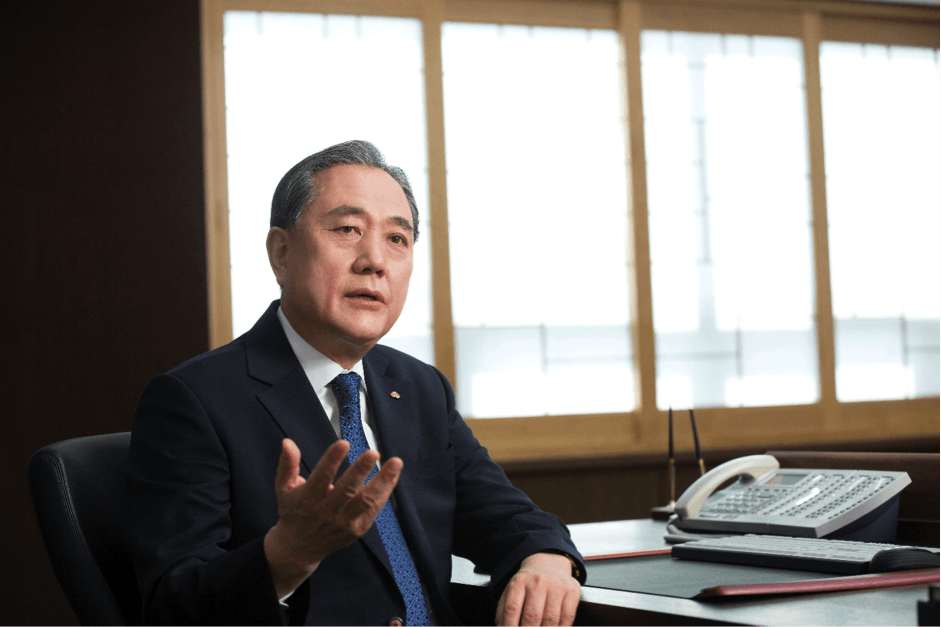With the International Co-operative Congress due to take place in the Republic of Korea next year, we spoke to Park Cha Hoon, president of the Council of Korean Co-operatives, to find out how the country’s co-ops are preparing for the celebration..
How did you become involved in the co-operative movement?
Park Cha Hoon: My co-operative journey started in 1997. That year, Korea suffered an unprecedented financial crisis to the point that it had to ask the IMF for a bailout. In the midst of the financial crisis, I saw people and small businesses collapse one by one. At the time I was a member of the local council of my hometown of Ulsan, so I couldn’t help but consider the role of ‘financial co-operatives’ – known as Saemaul Geumgo – in helping the local community. So it was Korea’s financial crisis that led to my engagement in the co-operative movement.
Can you tell us more about Saemaul Geumgo?
Park Cha Hoon: Saemaul Geumgo is a community-based financial co-operative model that started developing in 1963 as part of the efforts to rebuild the nation in the aftermath of the Korean War. It is based on the ancient practices of mutual help found in Korean villages. The members collect a village fund and use it to access low-interest loans when they need these. They also receive a dividend. This community identity is maintained even today. Currently, there are 1,300 Saemaul Geumgos with 3,217 branches and they have KRW 200tn (USD 170bn) worth of assets across Korea.
I know you preside over the Council of Korean Cooperatives. Who are the other members of the council and what is its main purpose?
Park Cha Hoon: The Council of Korean Cooperatives was established in 2009 by different co-operatives in Korea who are also members of the International Cooperative Alliance (ICA). The council is a platform for discussion and co-operation among member organisations in order to fulfil their corporate social responsibility and make a positive contribution to the nation’s economy, society and environment.
The ICA World Congress will take place in Korea next year. What are your expectations for the event?
Park Cha Hoon: We expect the Congress to serve as a platform to let the world know that co-operatives are one of the key players leading a transition toward a more sustainable economy and making a positive contribution to the environment, particularly in the context of rebuilding post Covid-19.
The main theme of the Congress is Co-operative Identity. How would you define co-operative identity from the perspective of Korean co-operatives?
Park Cha Hoon: Co-operative Identity is defined by the values of self-help, self-responsibility, democracy, equality, equity, and solidarity, and the seven co-operative principles. For us in Korea the principle of ‘Concern for Community’ is of great importance. Korea has a particular history of rebuilding its society and economy post war in a short period of time. Korean co-operatives were noted as important players in encouraging members to participate in economic activities, carrying out the government’s regional development projects, and leading the balanced development of local communities. We will be able to get a glimpse of what co-operative identity means for them and how co-operatives can help to drive sustainable development in their communities, just like they did for the Rochdale Pioneers back in 1844.
How have co-operatives in Korea responded to the COVID-19 crisis?
Park Cha Hoon: We were able to confirm that co-operatives could be a solution during times of crisis. Co-operatives have tried to share the pain and overcome difficulties not only by helping to produce hand sanitisers and facemasks, but also by collecting individual donations from co-operative employees and delivering them to affected regions and members. Another trend co-ops witnessed was a 20% increase in sales – we believe that people’s trust in co-operatives increased as a result of the crisis.
How is the Korean movement engaged internationally?
Park Cha Hoon: International efforts are needed to further strengthen the relationship and trust between co-operatives and their communities. If the relationship is one built on trust, we can overcome any crisis. We recently started the #StayStrongCooperatives campaign, which aimed to emphasise how co-operative values and solidarity can help to overcome Covid-19. In the movement’s long history, co-operatives have weathered and overcome any difficulties. Let’s overcome Covid-19 together!
